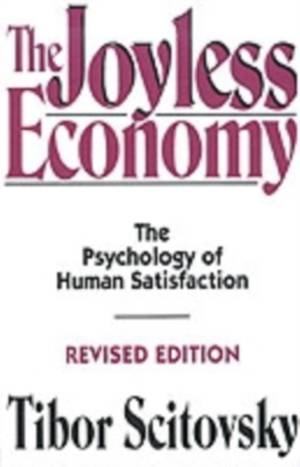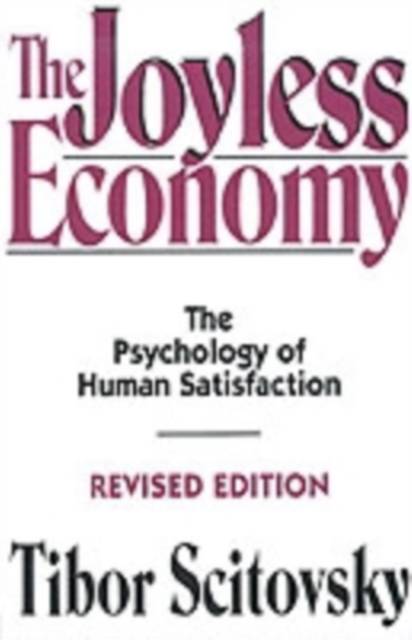
Bedankt voor het vertrouwen het afgelopen jaar! Om jou te bedanken bieden we GRATIS verzending (in België) aan op alles gedurende de hele maand januari.
- Afhalen na 1 uur in een winkel met voorraad
- In januari gratis thuislevering in België
- Ruim aanbod met 7 miljoen producten
Bedankt voor het vertrouwen het afgelopen jaar! Om jou te bedanken bieden we GRATIS verzending (in België) aan op alles gedurende de hele maand januari.
- Afhalen na 1 uur in een winkel met voorraad
- In januari gratis thuislevering in België
- Ruim aanbod met 7 miljoen producten
Zoeken
€ 22,95
Uitvoering
Omschrijving
When this classic work was first published in 1976, its central tenet--more is not necessarily better--placed it in direct conflict with mainstream thought in economics. Within a few years, however, this apparently paradoxical claim was gaining wide acceptance. Scitovsky's ground-breaking book was the first to apply theories of behaviorist psychology to questions of consumer behavior and to do so in clear, non-technical language. Setting out to analyze the failures of our consumerist lifestyle, Scitovsky concluded that people's need for stimulation is so vital that it can lead to violence if not satisfied by novelty--whether in challenging work, art, fashion, gadgets, late-model cars, or scandal.
Though much of the book stands as a record of American post-war prosperity and its accompanying problems, the revised edition also takes into account recent social and economic changes. A new preface and a foreword by economist Robert Frank introduce some of the issues created by those changes and two revised chapters develop them, discussing among others the assimilation of counter-cultural ideas throughout American society, especially ideas concerning quality of life. Scitovsky draws fascinating connections between the new elite of college-educated consumers and the emergence of a growing underclass plagued by drugs and violence, perceptively tracing the reactions of these disparate groups to the problems of leisure and boredom.
In the wake of the so-called "decade of greed" and amidst calls for a "kindler, gentler" society, The Joyless Economy seems more timely than ever.
Though much of the book stands as a record of American post-war prosperity and its accompanying problems, the revised edition also takes into account recent social and economic changes. A new preface and a foreword by economist Robert Frank introduce some of the issues created by those changes and two revised chapters develop them, discussing among others the assimilation of counter-cultural ideas throughout American society, especially ideas concerning quality of life. Scitovsky draws fascinating connections between the new elite of college-educated consumers and the emergence of a growing underclass plagued by drugs and violence, perceptively tracing the reactions of these disparate groups to the problems of leisure and boredom.
In the wake of the so-called "decade of greed" and amidst calls for a "kindler, gentler" society, The Joyless Economy seems more timely than ever.
Specificaties
Betrokkenen
- Auteur(s):
- Uitgeverij:
Inhoud
- Aantal bladzijden:
- 352
- Taal:
- Engels
Eigenschappen
- Productcode (EAN):
- 9780195073478
- Verschijningsdatum:
- 26/03/1992
- Uitvoering:
- Paperback
- Formaat:
- Trade paperback (VS)
- Afmetingen:
- 142 mm x 216 mm
- Gewicht:
- 435 g

Alleen bij Standaard Boekhandel
Beoordelingen
We publiceren alleen reviews die voldoen aan de voorwaarden voor reviews. Bekijk onze voorwaarden voor reviews.









